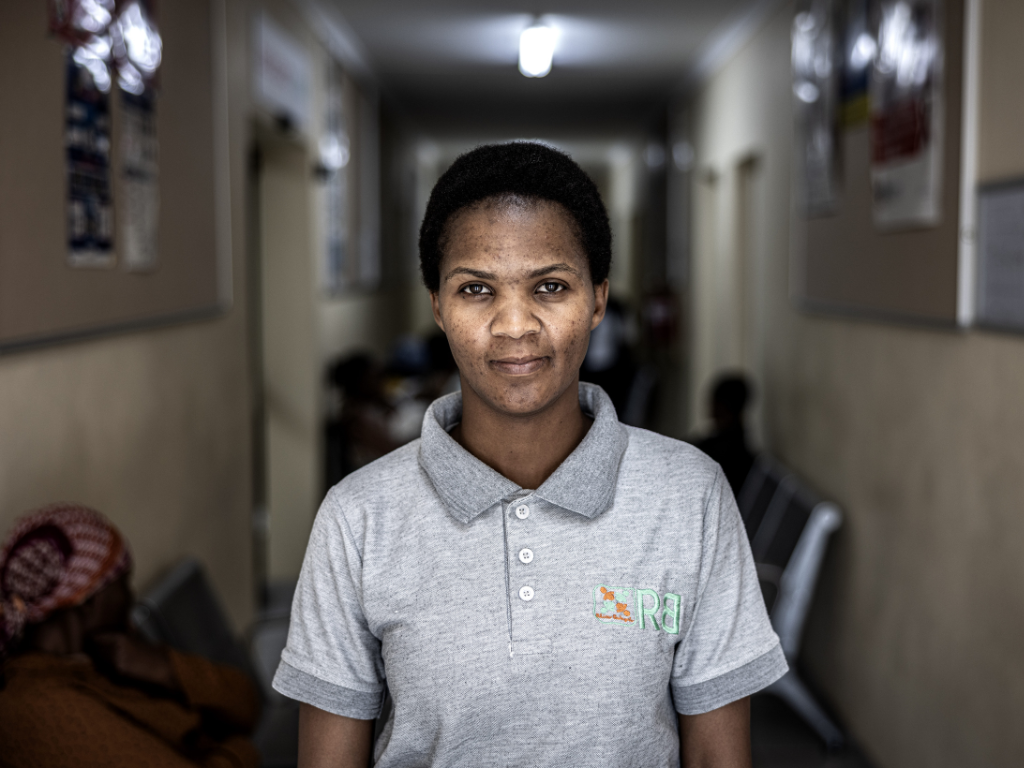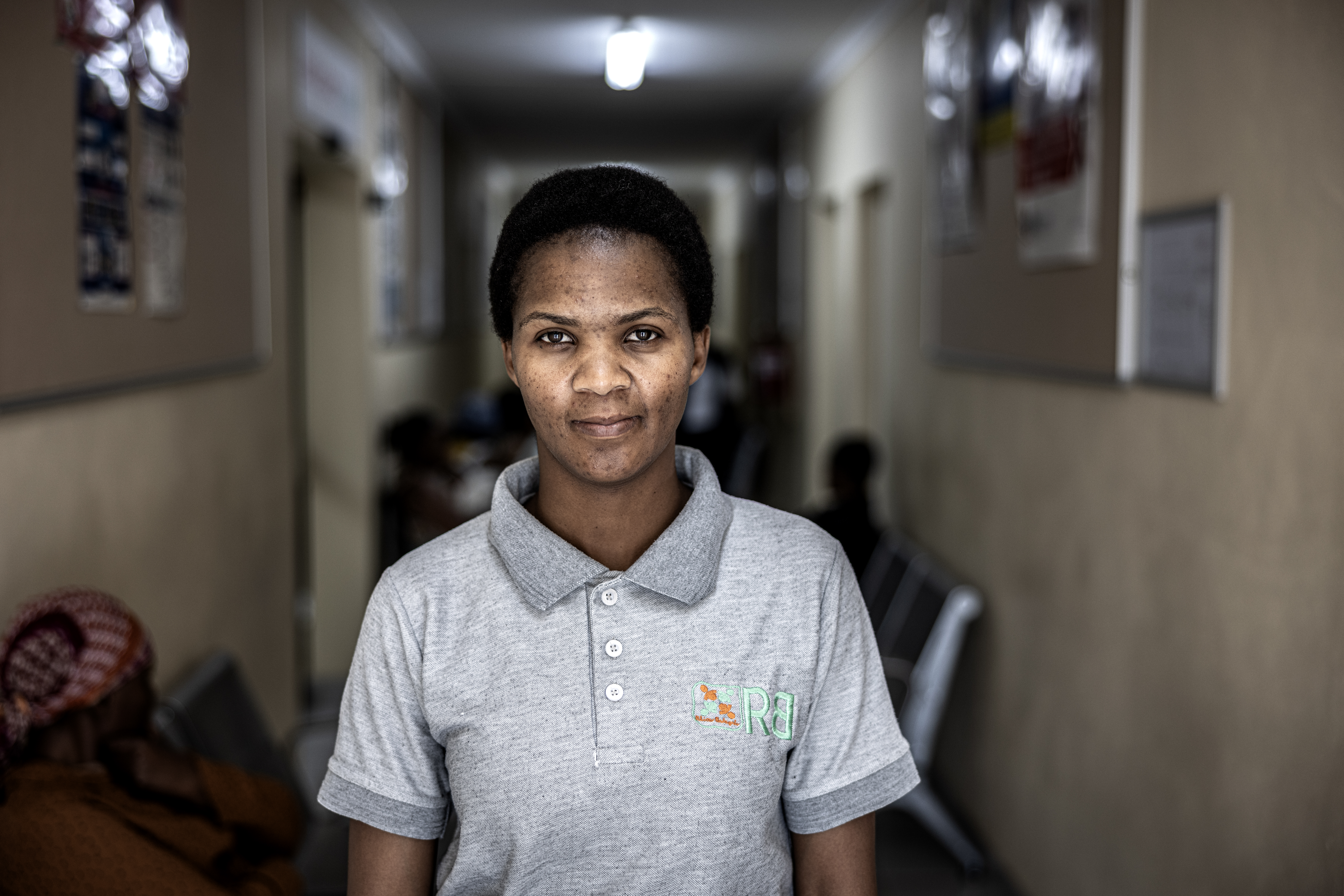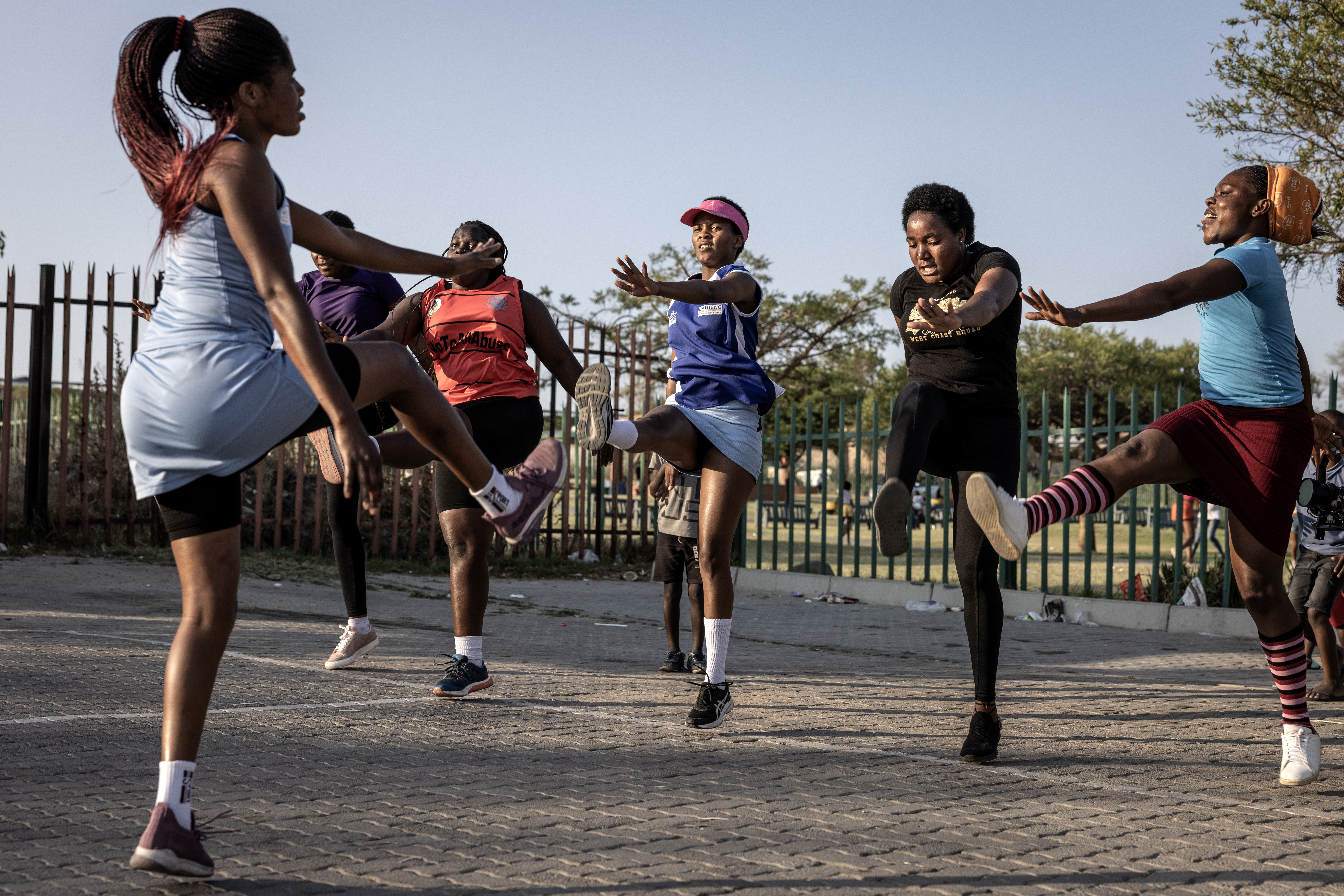Show Menu
Choose Your Location
You are now leaving the Viatris page for a Viatris affiliate site or third party site that is solely responsible for its content, including its compliance with guidelines applicable in certain geographies. Links to Viatris affiliate sites and third party sites are provided as a resource to our visitors and may not be governed by the same regulatory requirements applicable to this site and unaffiliated third party sites are subject to their own terms and data protection notices and practices. Moreover, if their third party site is subject to other country laws, regulatory requirements, data protection requirements or medical practices may differ between countries and the information provided therein may not be suitable for use in your country.

Access & Impact
By: Niki Kapsambelis
November 16, 2023
When Olebogeng Moumakwe strides through the maze of streets that weave through Diepsloot, people often call out to her in recognition – whether she remembers them or not.
They might have seen her playing or coaching netball, the sport that has been her lifelong passion. They might have seen her at the Rhiza Babuyile health clinic where she works. Or she might have knocked on their doors when they were tending a sick child or newly arrived to the city, checking to see if they needed anything.
“Some of them, I don’t know their names, but they’re still greeting me on the streets,” said Olebogeng, who is sometimes affectionately called “coach” by the people who know her through sports. “They are like, ‘Do you remember that day you did this and that for me?’ And then I’m like, ‘Oh, okay, you’re still fine.’”
In the 10 years she has lived in Diepsloot, Olebogeng has seen it grow and change, attracting people from across the continent who hope to make a life in Johannesburg, South Africa’s largest city.
“I myself call it Africa, because we are a lot here and different tribes, different people,” she said. “In the environment that I’m working in right now, we have different patients with different backgrounds and different languages to speak. So I have to catch up with them.”
The clinic where she works was built through funds from Viatris in partnership with Rhiza Babuyile, a non-governmental organization dedicated to empowerment through community development. Olebogeng went to work for the NGO in 2019, initially in an administrative role but later branching out to become a community health worker.

She spends her days roaming Diepsloot, going door to door, becoming the clinic’s eyes and ears into the community. Who was struggling to find food? Whose children needed immunization? Who needed medical attention?
The conditions are often difficult. Rains brought flooding; overpopulation brought crime. Still, Olebogeng continued to knock. Behind some doors, she might find people in desperate need, unsure of where to turn. She recalls calling an ambulance for a man who had not been taking his heart medication correctly and was too sick to get out of bed; after getting medical attention he survived. Another man, sick with tuberculosis, was able to get help from the clinic after learning about it from Olebogeng.
She explains that they will be treated with dignity, and their care will be affordable. A waiting room mean they don’t have to stand in long lines for hours. After they receive care, she’ll follow up with them to see how they’re doing.
In the process, she has learned to speak several languages to communicate with the people of Diepsloot – so many that she has to think as she names them: Venda. Zulu. Some Xhosa. A little bit of Afrikaans. She’s trying to learn Tsonga, but it’s difficult.
“I’m a good listener. I love to learn, so it wasn’t that hard for me to know other people’s languages,” she explained. “I’m going to learn each and every day: This person speaks Zulu, I have to learn Zulu.”
She arrived at 17, seeking a life more interesting than the one she left behind in her quiet hometown. Worried about her safety, her father insisted that she stay with an aunt. But after working at the clinic, she became financially independent and was able to move into her own place.
Now 27, Olebogeng credits her work at the clinic – and the guidance of its manager, Sister Thandi Mcgina, with giving her confidence to pursue a career in healthcare. Through Rhiza Babuyile, she hopes to win financial aid for studies to become a pharmacy assistant, an interest she developed while observing how patients at the clinic were helped by medication.
Her interest in helping people stay healthy extends beyond her work. She recruits young girls from the streets to play sports, giving them something constructive to do, focusing their minds on the discipline required for the game. During some practices, she dedicates time to explaining women’s health issues.
Hear Olebogeng explain how coaching girls in sports is meaningful in other aspects of their lives.

“Me going to them and teaching them something about life, it means a lot,” she said. Just as Sister Thandi demands excellence from her at work, Olebogeng, in turn, sets high expectations for her players, while showing them understanding when things go wrong.
“I think I can be a leader,” she said. “Because of what I’m experiencing right now, it’s teaching me a lot for the future.”
Photos by Finbarr O’Reilly